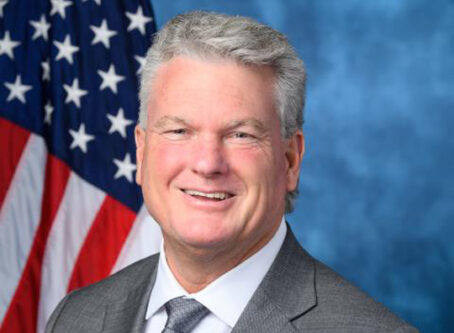Georgia on my mind
Goodbye, 2023. It was a tough year for trucking. It was also the year the Georgia Senate decided to help.
It shouldn’t have.
In 2023, there wasn’t enough freight to go around. Contract rates fell and spot rates all but submerged. Thousands of small fleets and owner-operators were forced out of business. Meanwhile, some brokers continued to shortchange truckers (and shippers), double broker freight and sometimes not pay at all – even as the Federal Motor Carrier Safety Administration stalled on broker transparency rules. And despite lots of blah, blah, blah on the issue, truck parking continued to cost drivers time and earnings, not to mention the risk of parking on ramps and in other unsafe places.
So Georgia decided to tackle the driver shortage.
Of course, there is no shortage of fully qualified truck drivers. But to local carriers trying to fill driver seats, it feels like there is. Thus they complain about a driver shortage – an idea big truckload and its marionettes at the American Trucking Associations have cynically promoted for decades.
What Georgia does lack – along with the rest of the country and a good chunk of the free world – is qualified applicants who actually want the job. Many drivers out there simply won’t work for what the jobs pay. Sure, there are other reasons: too little home time, poor communication, old equipment, etc. But virtually all such reasons become tolerable if the pay is high enough.
In any case, it’s a long-term problem many local carriers care less about than seating drivers immediately.
In Georgia, fleets apparently got politicians so worried that the state Legislature created the Senate Study Committee on Truck Driver Shortages.
Last year, the committee heard from 25 witnesses in three meetings and adopted a 32-page report with 16 recommendations for Georgia’s Legislature. Sadly, only two could conceivably help lure qualified truck drivers into – or back to – the industry.
One recommendation is for Georgia lawmakers to “work with GDOT to expand public truck parking options.” More parking could ease the stress of finding a place to get safely off the road. Less stress means a more attractive job.
The other recommendation is for Georgia’s congressmen and senators to prod the feds to “examine the ramifications of shifting to an hourly wage system.” Paying drivers for their time would, among other things, incentivize carriers to seriously fight the unpaid shipper and receiver delays that cause so many drivers to quit.
Those are good ideas. The committee’s remaining recommendations, however, are all about funneling more bodies into the immense pipeline of new drivers, even though most soon will quit to join the ranks of fully qualified drivers working in other industries. Those recommendations involve things like speeding up the licensing process or spending more public money to train truck drivers.
Those may not be bad things per se, but the committee clearly took its cue from Big Truckload’s misleading narrative. The committee wants Georgia to recruit, train and license women, minorities, veterans, convicts, teenagers and maybe even livestock.
That’s precisely the wrong thing to do.
If the committee members had heard from university researchers like Michael Belzer or Steve Viscelli, who have studied the industry for decades, and if they hadn’t bought into Big Truckloads’ driver-shortage fantasy, they might have made different recommendations.
OK, since researchers don’t make campaign contributions, probably not. But at least the committee would have heard the truth.
By helping recruit even more rookies, though, it is addressing the wrong end of the new-driver pipeline. The real problem is retention, and it won’t meaningfully improve until drivers earn enough to make all the demands of the job worthwhile. That can’t happen as long as the pipeline is full and flowing. Even if they don’t stay long, all those newbies pouring into the industry help keep wages low.
Improving those wages won’t happen through unionization – especially not in the truckload sector, which has the highest turnover at approximately 90%. Truckload has proven immune to organization efforts.
It can happen only if the flow of new drivers slows, the free market does its job and carriers have to raise pay. That’s what happened in the economic bubble following the COVID crisis. Facing historically high demand, carriers did boost pay, though not enough to significantly increase driver retention. It could have increased more if Big Truckload, ATA and all those recruiters weren’t working so effectively to stuff the pipeline with newbies. (Sadly, the benefit of truckload pay gains during the boom largely was lost in the inflation that followed.)
So while Georgia set out with good intentions, it attacked a bogus problem. And to the extent that its actions might actually work, they can help only in maintaining the status quo or in making things even worse. LL









